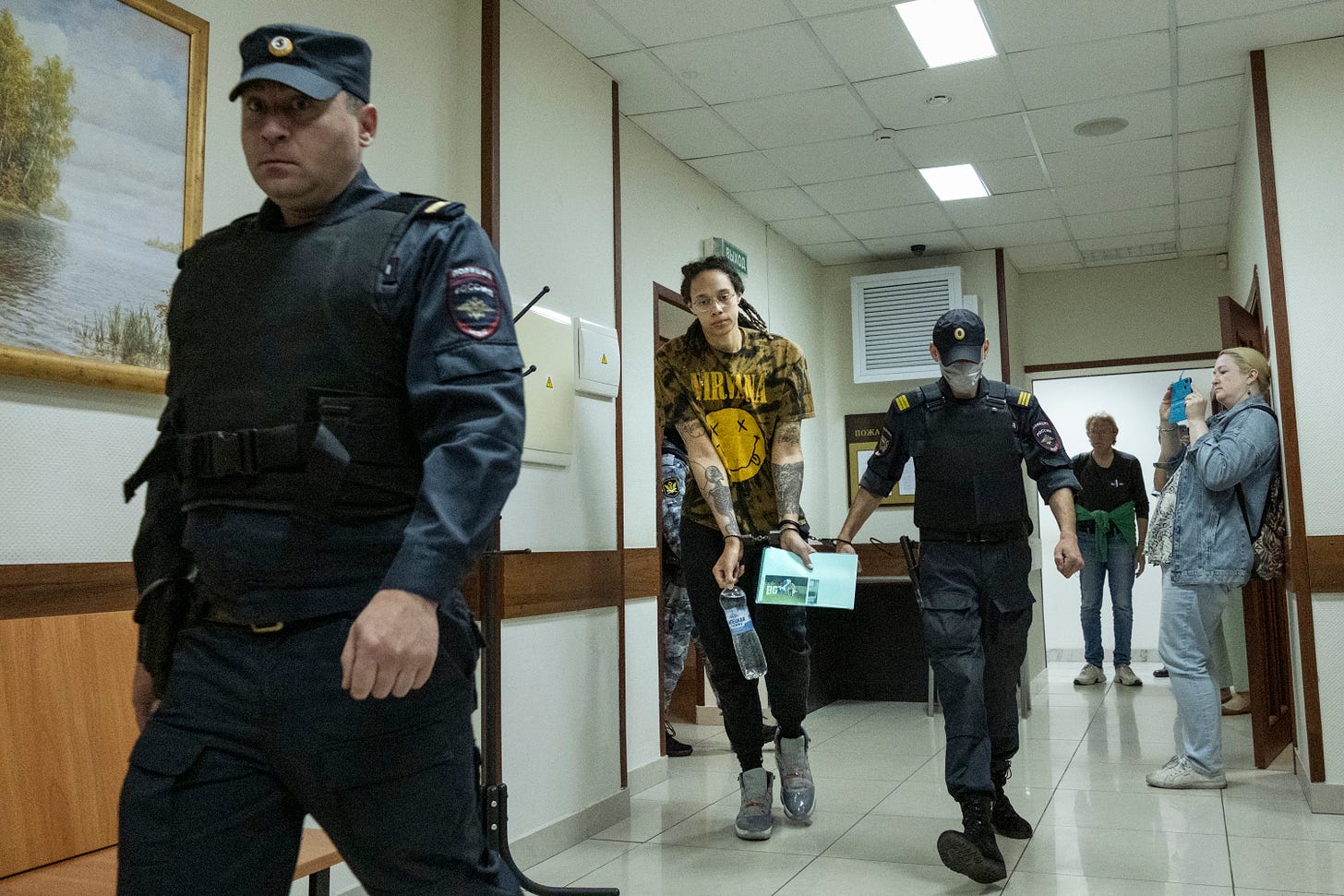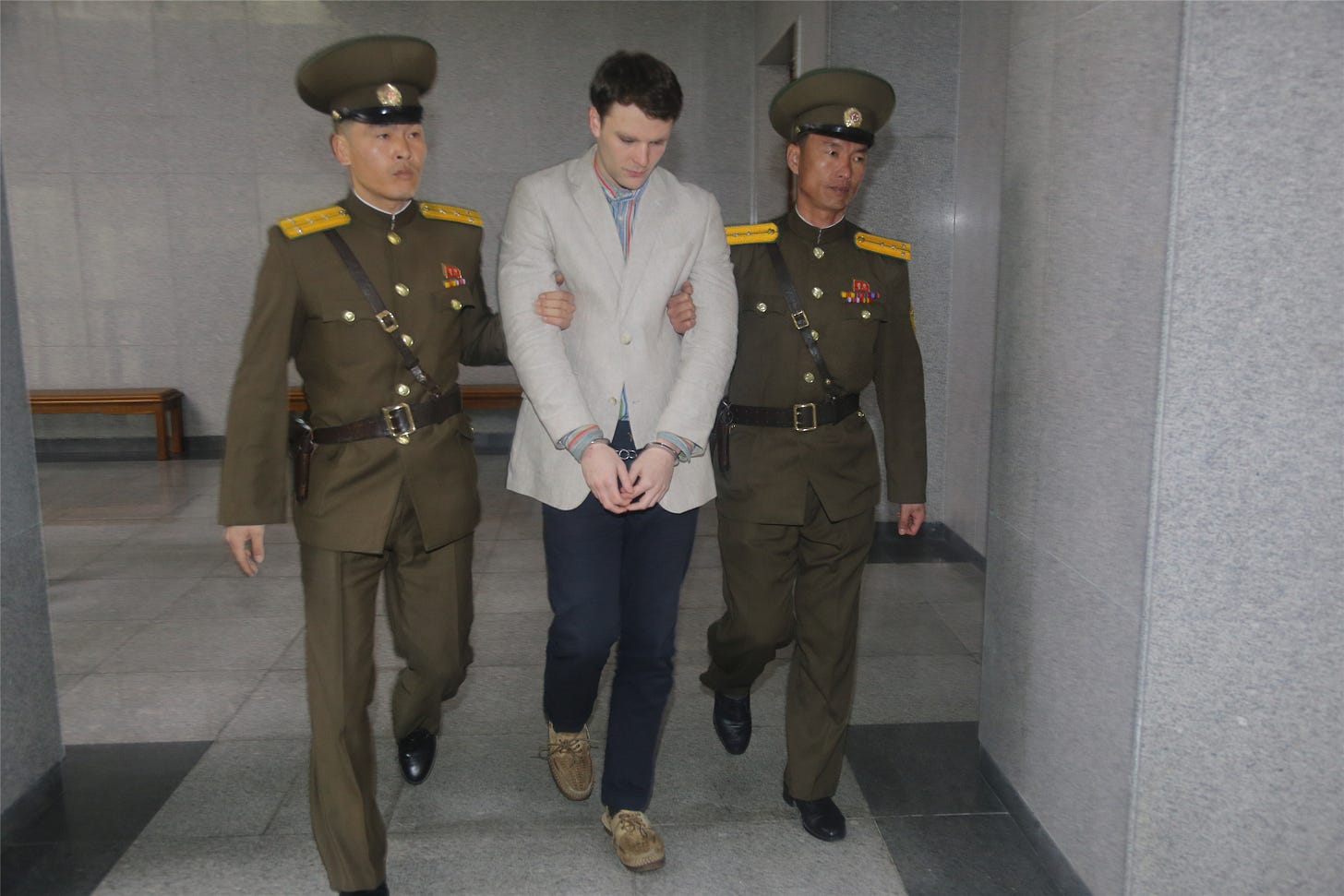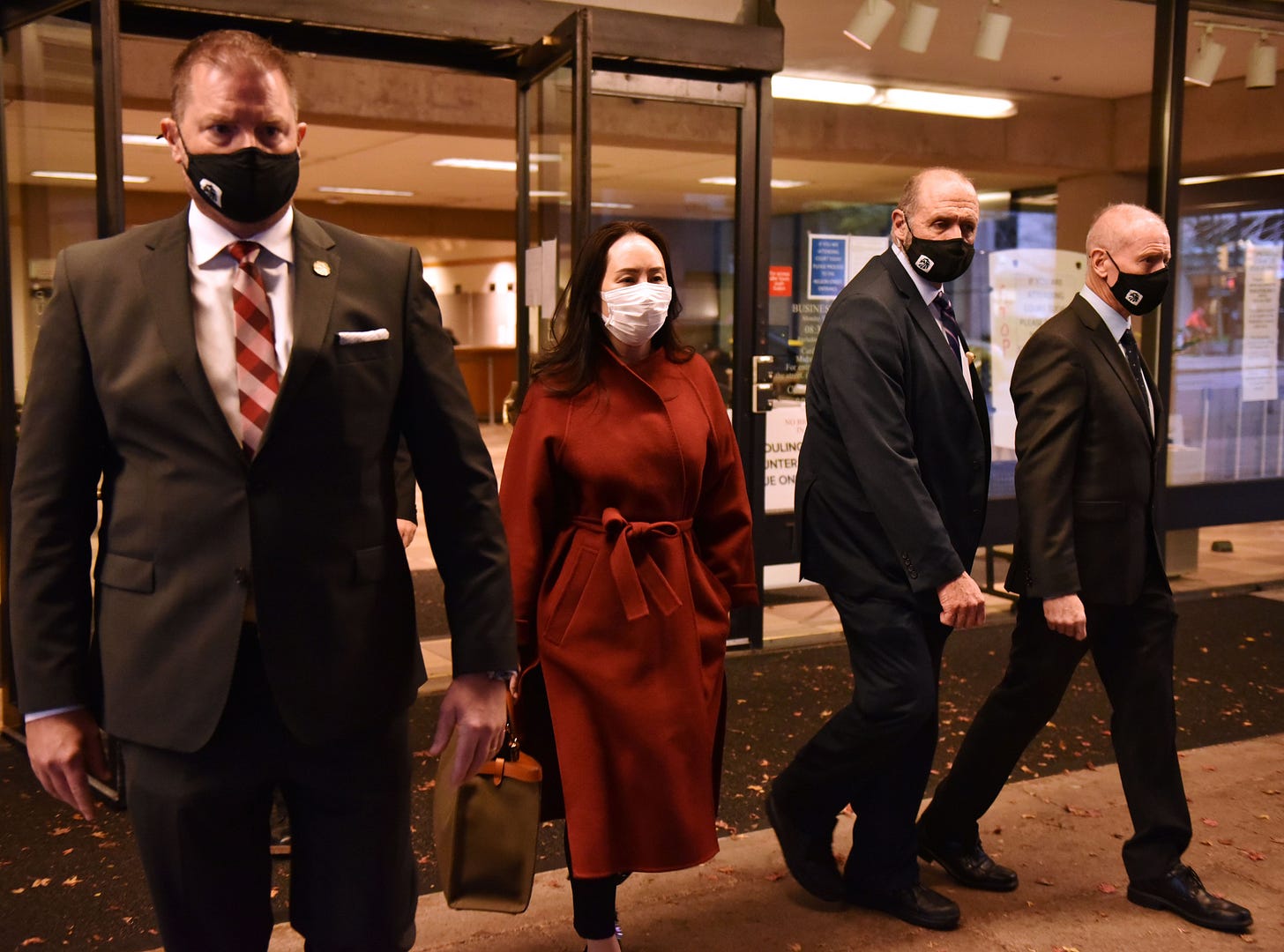On hostage diplomacy
The rise of the geopolitical hostage stand-off; be careful where you travel; and how I was almost taken hostage for my reporting.
Hostage-taking has become a feature of diplomacy involving authoritarian governments. Today, President Biden signed an executive order that will allow the United States to sanction people or governments that take Americans hostage, and will set up a warning system for Americans planning a trip. This comes as WNBA basketball star Brittney Griner faces up to 10 years in prison for entering Russia with medical cannabis in her bag.
In all likelihood, it’s retaliation for vast US sanctions against Russian oligarchs and government officials for their war in Ukraine.
WNBA star Brittney Griner under arrest in Russia. Used with permission from Getty/Washington Post.
Hostage stand-offs were once a ritualized diplomatic tool for basketcase governments like North Korea and Iran. They were less common for global powers Russia and China, which were more embedded in the international order and stood to suffer economically and diplomatically for breaking the rules of engagement.
Back when I was a journalist covering North Korea, I wrote stories with alarming regularity about foreign tourists being detained for “naughty” schemes by local standards, like leaving a Bible underneath a bathroom bin, or openly talking about missions as a US special forces soldier from the 1950-53 Korean War—chatter that North Korea would consider hostile since it considers itself still at war.
Some of us assumed that the hostage-taking was a passing danger that we could all avoid by following the rules—by not giving a hostile regime reason to detain you. After all, everyone was released in the end, and the pattern suggested it was an on-and-off political game.
The game almost always went like this: North Korea secured a prestigious visit from Jimmy Carter, Bill Clinton or another dignitary. The sight of Clinton shaking hands with a North Korean official bolstered the country’s internal propaganda, showing its people that their leaders were powerful, respected and feared, so much that former American presidents paid homage to them. The American hostage would sign a confession, written in broken English by their government captors, and then would be released on the next flight out.
Around six years ago, these unspoken rules and rituals began falling apart. First, the stakes were elevated with the death of Otto Warmbier, a Virginia college student who was detained in North Korea and who died in a coma in June 2017. The cause of his coma still remains mysterious, but we know that he became comatose under North Korean captivity, before the regime sent him back to America in a vegetative state.
Then, the world’s dictators learned a thing or two from the smaller banana republics, as the world increasingly split into a US and EU-led democratic sphere and a China- and Russia-led authoritarian one. China, Russia and their allies needed their own tough response to Western sanctions.
Unlike the globalization era that preceded our times, these regimes had benefited all they could from the neoliberal economy and no longer had much to gain through genteel trade negotiations. They had become more powerful than ever since the end of the Cold War and yet were more isolated, sanctioned and paranoid. What difference would an American hostage make here or there?
Otto Warmbier. Used with permission from Getty/Xinhua.
I had a scary run-in five years ago in Cambodia, a Chinese ally, when government-aligned media invented a story that I was a spy on a mission to topple the prime minister. It sounded ludicrous, but it had huge implications for my career as a foreign correspondent. My photo was posted all over the newspaper front page, primetime TV and social media accounts.
Luckily, I wasn’t in Cambodia and I was safe. But an Australian filmmaker, James Ricketson, was arrested after a similar smear campaign, sentenced for espionage, and held in a Cambodian prison for one year.
Two years later, in 2019, an acquaintance and a Canadian expatriate in China, Michael Spavor, was arrested and put on trial for murky “national security crimes” that probably involved sports tours that he organized to North Korea. He joined another Canadian, Michael Kovrig, a former diplomat on sabbatical in China.
After two and a half years in Chinese jails, they were released only after Canada authorized a de facto hostage exchange involving the Chief Financial Officer of the Chinese tech company Huawei, Meng Wanzhou, freeing her from the possibility of extradition to the US for alleged sanctions fraud.
The lesson? Hostage negotiations work.
Meng Wanzhou. Used with permission from Getty/AFP.
Even Hong Kong, once a democracy, passed a law in 2020 that, vaguely worded, could justify the arrest of anyone from all over the world, even in transit at the airport, under a myriad circumstances that supposedly harm the “national security” of Hong Kong. You might have been photographed standing nearby an anti-China protest in Germany, or you signed a public petition from your smartphone while taking the subway in New York.
Hong Kong authorities haven’t applied the law that harshly against a foreign citizen yet, but there’s little stopping them if political expediency calls for it.
Sure, the chances of you being accused of espionage during your three-week backpacking trip are miniscule. The problem is that you can now be targeted for any reason at all under a practice that’s increasingly normal and anticipated.
If you have friends in the government, you might be a spy by association. If you work in the semiconductors or a technologically-related industry, you’re part of a hostile conspiracy to steal intellectual property. If you post a “disrespectful” tweet about Putin from your home in Idaho, the slammer could await you after you book a tour of Moscow’s Red Square.
The age of safe, convenient, easy global travel is finished, and we’ll all need to be more careful where we go in the future.
Geoffrey Cain is a senior fellow at the Lincoln Network.





All forms of fascism are enemies of freedom. Good reporting and thanks for the heads up.